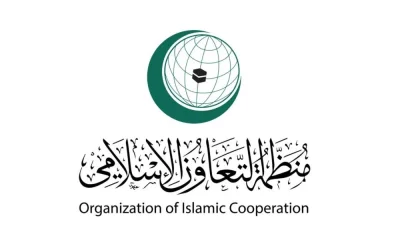The growing popularity of Islamic banking and finance and its increasing global outreach has led to a considerable undersupply of talent in the sector, both in the Middle East and in Southeast Asia, but also in new regions currently adapting to the alternative finance system such as in Africa and Central Asia.
Estimations are that there is a shortfall of between 8,000 and 10,000 in core Islamic finance fields in Gulf Cooperation Council countries alone, plus more in peripheral sectors such as law and regulatory affairs, financial technology, insurance and others. Altogether, as the industry continues to grow, at least 56,000 people will be needed to serve the Islamic financial sector in the coming years, according to the Finance Accreditation Agency (FAA) of Malaysia.
“Islamic banking assets in six core markets – Qatar, Indonesia, Saudi Arabia, Malaysia, the UAE and Turkey – are estimated to reach a combined asset volume of $1.8tn by 2019,” says Dr Amat Taap Manshor, the FAA’s CEO.
“But the human capital meant to support the industry is still in its infancy, and shortages will be felt most acutely in the capital market sector,” he adds.
Government agencies tasked with the development of Islamic finance in their respective jurisdictions are called upon to focus on skills development and make it one of the priorities of their initiatives. Many have already done so, for example the Bahrain-based Islamic Corp for the Development of the Private Sector, which set up its ICD Islamic Finance Talent Development Program, or several initiatives in Malaysia, including programmes at the Islamic Banking and Finance Institute Malaysia (IBFIM), the International Center for Education in Islamic Finance (INCEIF), the International Shariah Research Academy for Islamic Finance (ISRA) and the Asian Institute of Finance (AIF), a think tank jointly established by the Central Bank of Malaysia and the Securities Commission Malaysia, to enhance human capital development and talent management across the financial services industry in Asia.
Apart from that, the UK, interestingly, has the highest number of Islamic finance education providers with about 70 institutions, including universities, schools and other education providers offering Islamic finance courses and degrees.
Such programmes normally provide a full range of Islamic finance subjects, including Islamic capital markets, Islamic financial systems, Islamic banking operations, Islamic corporate governance, public finance, accounting and auditing, takaful, Shariah financial law and Islamic economics. However, Manshor notes that Islamic finance education institutions “need to become more directly involved in designing Islamic finance modules because programmes must match specific industry needs.”
A survey conducted by the Malaysia International Financial Center last year showed that the top three competency gaps among those in Islamic finance included Shariah expertise, innovation and product development, as well as technical Islamic finance knowledge. Adding to that, while there is sufficient supply of general Islamic banking training courses, there remains demand for specialty fields such as wealth planning and capital markets across the industry.
As an example what kind of imminent problems a talent shortage can bring for the Islamic finance industry, former Malaysian Institute of Accountants president Mohammad Faiz Azmi points out that it has definitely led to a current lack of high-quality sukuk on Malaysia’s Islamic finance market with too few sophisticated sukuk on the market and Islamic banks and investors left with not enough high-quality instruments to invest. Instead, there are too many poorly designed sukuk with a rating below BBB- on the market into which institutional players do not invest.
“This could pose a great threat to the future growth of the industry, as well as limit the potential advancement in the sukuk market,” Azmi says.
Academics suggest that Islamic finance education institutions should address three core issues to overcome challenges in developing Islamic finance talent. Firstly, there is a need for more quality programmes that meet the requirements of a rapidly changing banking industry prone to disruption by new services and technologies. To that end, input from industry practitioners should be part of the programme design process in order to ensure the improvement of practical skill components. This would also entail a more user-specific approach customised to regional and sector specifics, as well as an increased focus on innovation.
Secondly, Islamic finance education providers should seek the consultation of the industry to determine the relevance of their curricula. Greater industry input is seen as essential, while providers should also make greater efforts to track the eventual impact of their training in the industry.
Thirdly, jurisdictions and core markets should work closer together to create subject-specific and professional accreditation bodies and standards for Islamic finance experts which would greatly increase their employability and enable human resources divisions at Islamic finance institutions to hire skilled personnel more purposefully.

Delegates listen at the Islamic Finance and Trade conference in Westminster, London (file). The UK has the highest number of Islamic finance education providers with about 70 institutions, including universities, schools and other education providers offering Islamic finance courses and degrees.


